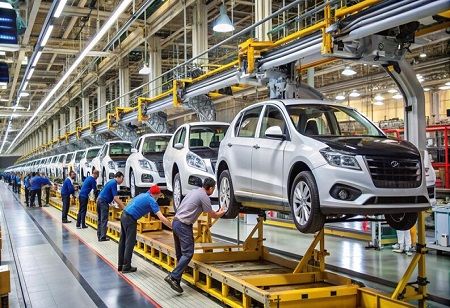
Chinese automakers and auto part suppliers will likely turn to tariff-friendly markets like Southeast Asia, of which Malaysia is likely to be a strategic destination. This is in reaction to rising tariffs in America and Europe, compelling Chinese companies to look for alternative destinations to transfer their excess production capacity.
This possible diversion may cause a surge in imports of Chinese cars and parts into Malaysia at very competitive prices, as per CIMB Securities Sdn Bhd.
"While this influx may benefit consumers in the short term by providing greater variety, access to advanced electric vehicle (EV) technologies, and more affordable options, it would also intensify competitive pressure on domestic players,” the firm said in a recent note.
Chinese carmakers like BYD and Chery are already making inroads into Malaysia, taking on established Japanese, South Korean, and European brands with their newer features, cost savings, and sharp pricing.
Amid such competitive transitions, CIMB Securities opines that domestic brand Perodua is well-positioned to maintain and even expand its market share.
"Perodua's competitive advantage stems from its affordable pricing and high local content, which help cushion the brand from fluctuations in import costs and currency movements,” it said.
"Its ability to maintain stable pricing is a major advantage as Malaysian consumers become more cost-conscious. Already dominant in the mass-market segment, Perodua stands to gain further if buyers who might have considered foreign brands opt for economical and locally produced alternatives," the firm added.
On the global level, CIMB Securities foresees little direct effect on Malaysia from the Trump administration reciprocal tariff policy due to the country's negligible exports of fully built-up vehicles and automotive parts.
"A prolonged tariff conflict and any resultant weakening of the ringgit would raise the price of imported completely knocked down (CKD) kits, components, and fully assembled vehicles. Currency volatility could squeeze margins and lead to higher input costs, putting pressure on automakers to either absorb the hit or pass it on to consumers," the firm noted.
"In Malaysia, where motor vehicle purchases are often tied to consumer financing, any deterioration in sentiment could reduce new vehicle bookings. We believe the extent of the impact will depend on the duration and severity of the US-China trade conflict and ringgit volatility," it added.
Given the subdued growth outlook and rising competitive pressures, CIMB Securities has maintained a 'Neutral' rating on the auto sector. However, Sime Darby Bhd remains the firm’s top sector pick, supported by its earnings-accretive acquisition of UMW Holdings Bhd, expanding presence in Australia's mining sector, and potential monetisation of non-core and land bank assets.

